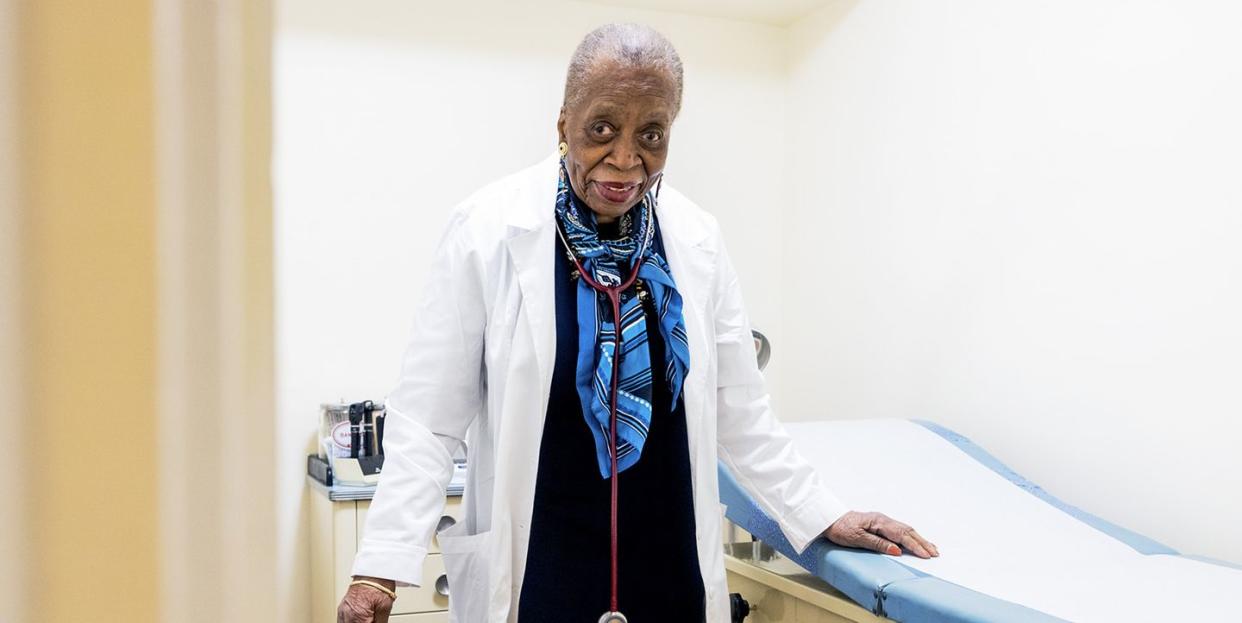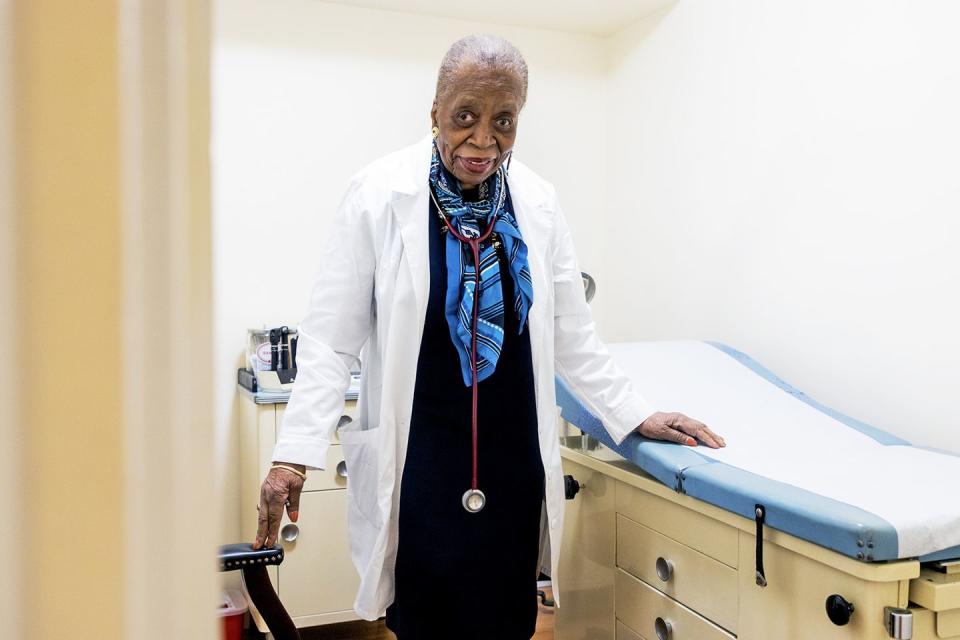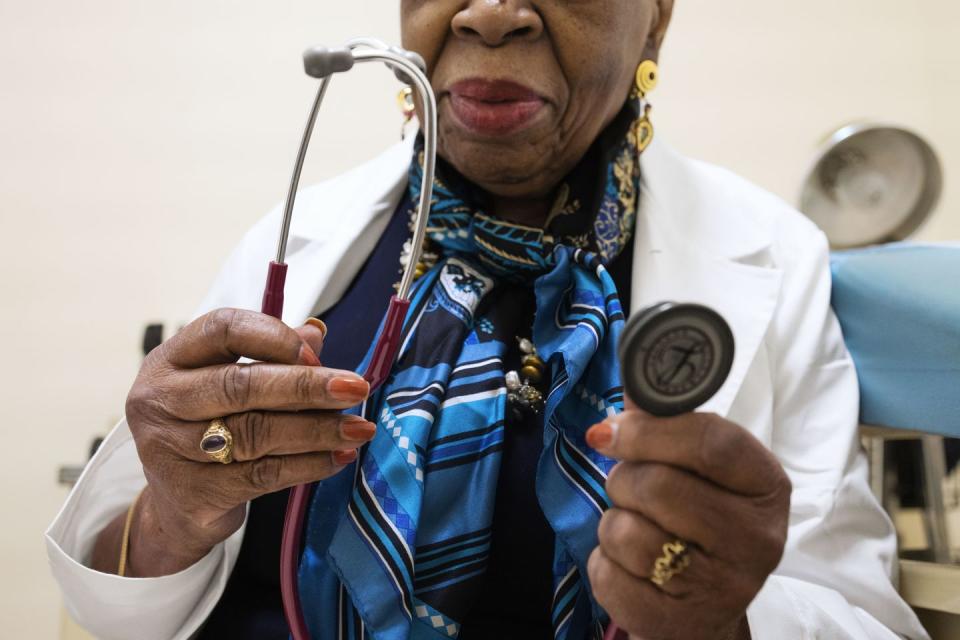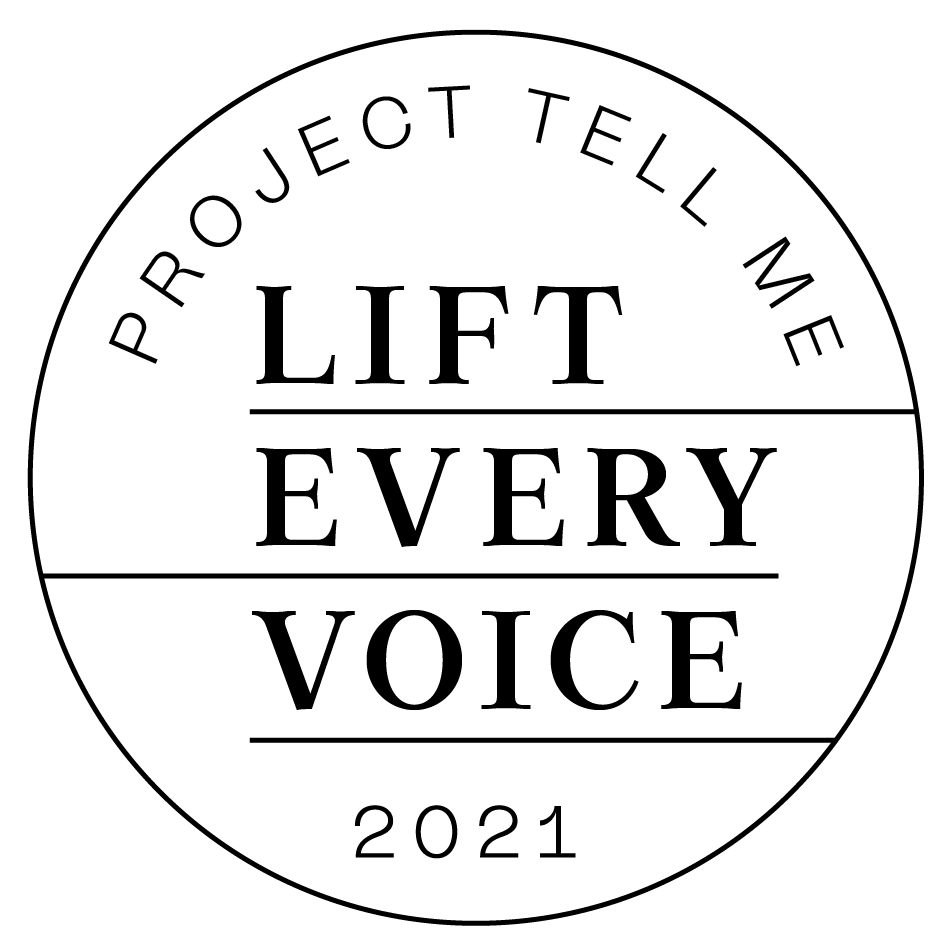Physician Melissa Freeman, 95, Has Been on the Frontline of the Fight Against Addiction for Decades

“Hearst Magazines and Verizon Media may earn commission or revenue on some items through the links below.”

Interview by Allana Haynes/
Photograph by Vonecia Carswell
Allana Haynes: Let’s start at the beginning. Where did you grow up?
Melissa Freeman: I grew up in the Bronx in an area known as Williamsbridge. I grew up in the house of my grandfather, who had been born enslaved. He bought this house in the Northeast Bronx, and they wanted their grandchildren to grow up together so we would be close in that house. I had one brother and two cousins, and we all grew up in this house in the Northeast Bronx.
AH: Your grandfather was enslaved? Were you close with him?
MF: Well, he was a slow man. He didn’t do a lot of talking to us, but he must’ve talked to his children. My mother, and his daughters—he told them his story. He never talked to us. He told them that he was taken away from his mother in the South, in Virginia, when he was a small boy. Sold away. Fortunately when the Emancipation was signed he was 11 years old, and he was told he could go back to his mother. He was fortunate in that he knew where she was. He went back to her, and they stayed together all the rest of her life. He was a quiet man and he made certain that the grounds around the property were always kept neat. He planted flowers—peonies and white roses. He planted those around the front of the house and in the backyard of the house.
AH: How does the granddaughter of a former enslaved man become interested in medicine?
MF: I was really interested in biology. I had taken a class in biology, and I’d taken classes in dissection of animals and so forth—which doesn’t sound very interesting, but it became the moment of thinking about possibly going into medicine.
I eventually went into the field of what they call internal medicine. I did my internship in New York at one of the local city hospitals in Brooklyn.
AH: What do you recall about the early years of your career?
MF: Once, I had started my internship at Kings County Hospital and I went to the pediatric ward, and a little fellow was there. I think he was about 5 years old. He said, “What’s your name?” I told him I was Dr. Freeman. He said, “You’re a doctor?” He said, “I never heard of a lady doctor.” He thought that was funny. Then he just asked me, “What do lady doctors wear?” At that time we wore skirts and jackets and so forth. He was just curious, I think.
After I completed my internship and my residency, I worked in a hospital in Manhattan, and two of the doctors there were looking for physicians who would be interested in working with patients who were addicted to narcotics. I had had exposure sometime before to a woman, one of the social workers in the hospital, who had once walked with someone into my office and said that she was addicted to narcotics and was there anything we could do? At that time there was nothing much we could really do, except to get them admitted to the inpatient division—but it was only just to get the patients in, get them off the drug, and let them go. I started working at that time in the field of drug addiction, managing the use of other medication to treat people who were addicted to drugs, particularly young women.
AH: I’m wondering, how did being a woman—and being a woman of color—affect your career, do you think?
MF: I don’t think it bothered me in any way. I went straight through. I did my internship, I went into another hospital out on Long Island as a woman, and I didn’t find any particular problem. I didn’t find many prejudices necessarily as a consequence of being a female and a female of color.
AH: What’s something that has motivated you to keep going through such a long career?
MF: Well, I had opened an office in Harlem and I treated people there, and it’s very challenging to work with people, and certainly people of color, Black people, helping them to defeat the areas of medicine that have unfortunately taken us away from life—hypertension and diabetes, kidney disease, pain, joint pain. All these areas I find very challenging and very—for me, something that I wanted to do and have continued to do.
AH: And you’re still practicing medicine to this day, correct?
MF: Yes, I am still practicing medicine in my own private office in Harlem.
AH: Have you ever thought about retiring?
MF: Not at this time, no. Not at this time. I’m not of a young age, of course, but I still have energy, and I still am able to open the doors of my practice and take in people as they come. If they’re interested in wanting me to help them to attack a particular problem that they have, I’m certainly more than willing to try to do it, and I do.
No thought of retiring. I don’t see the need to retire. I still have energy, and I still plan to continue as long as I have energy.

AH: What is something you hope that generations behind you will learn from your career, and your life?
MF: Well, when I see young people who may consider the possibility of going to medical school, I try to tell them, “Have you ever thought of going to medical school?” I try to convince them to enter medical school, going into pre-medicine in their high school, in their colleges, and then from there going into medical school, and then ultimately going into areas that will treat our people in these areas or problems that many of our people face. And I think that that’s something that all of us, many of our doctors, are doing and many of our physicians of color are doing. There’s a program that one of our friends runs every year where she introduces young people to the possibility of studying medicine. She has classes where doctors attend, and young people can come and talk with us about what we do, why did we do it, where did we do it. I think that’s a wonderful thing. It helps young people to consider the advantage of taking care and healing our people who find themselves with ailments that need to be treated if we were not there to do it.
The other thing that I think is important—if they don’t work it, if a young person does not find themselves interested particularly in medicine, I think it’s a very vital thing for our people to be encouraging youngsters to go to college, to get an education, complete high school and enter college and consider maybe not medicine, but some other field, at least to go on into college and get an education.
AH: You’ve lived through a lot of history. What are a couple of moments you’ve witnessed that stand out?
MF: The treatment of young people who are addicted to drugs and learning the importance of getting them into treatment, which we now have available more so than we did some years ago. And then, somebody asked me, what have I seen through my life that I found interesting? When I was a kid and living in the Bronx, somehow I guess my parents found out that a German [airship] known as a zeppelin was going to fly over the Bronx, over our houses. That was an interesting thing to just see that. It had come from Germany and came over the Bronx and over our homes in the Bronx and flew over into Jersey. Unfortunately it crashed and was demolished. It was a German zeppelin known as the Hindenburg, as a kid and we were all looking up at the sky to see this fascinating object flying overhead.
About the Journalist and Photographer
Turn Inspiration to Action
Consider donating to the National Association of Black Journalists. You can direct your dollars to scholarships and fellowships that support the educational and professional development of aspiring young journalists.
Support The National Caucus & Center on Black Aging. Dedicated to improving the quality of life of older African Americans, NCCBA's educational programs arm them with the tools they need to advocate for themselves.
This story was created as part of Lift Every Voice, in partnership with Lexus. Lift Every Voice records the wisdom and life experiences of the oldest generation of Black Americans by connecting them with a new generation of Black journalists. The oral history series is running across Hearst magazine, newspaper, and television websites around Juneteenth 2021. Go to oprahdaily.com/lifteveryvoice for the complete portfolio.

You Might Also Like

